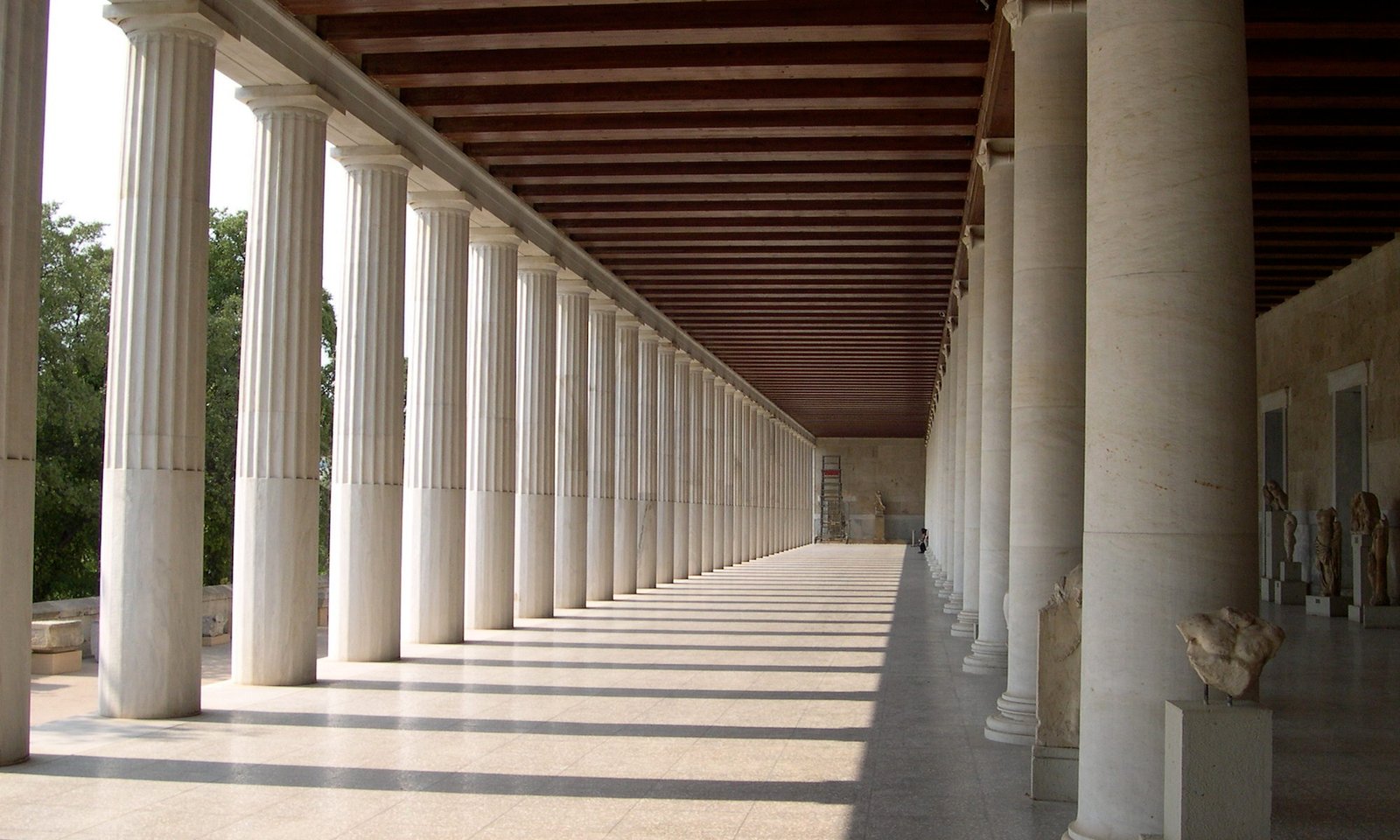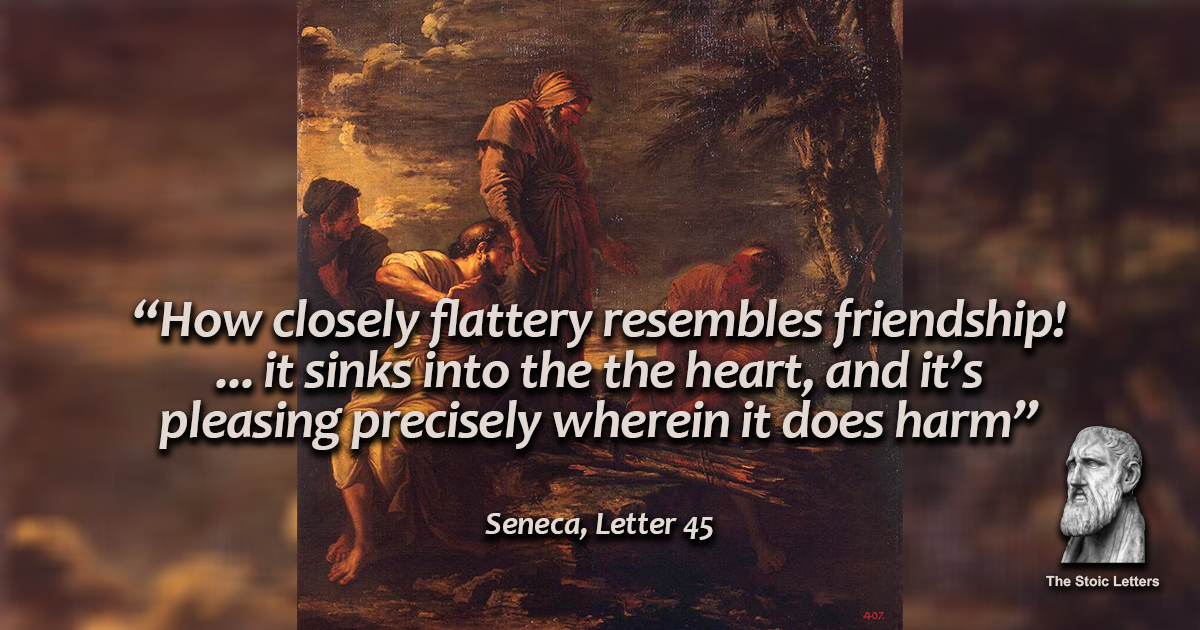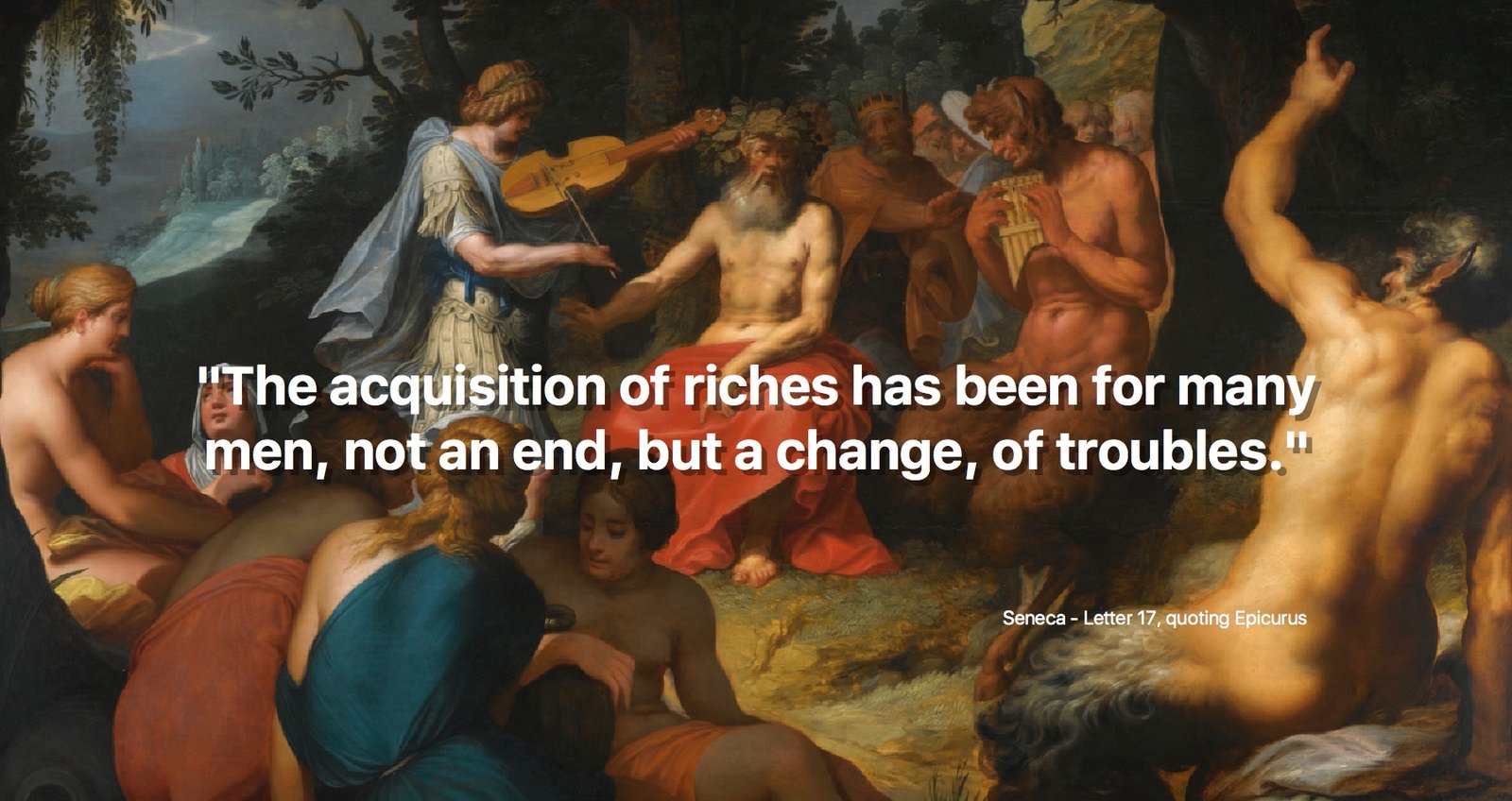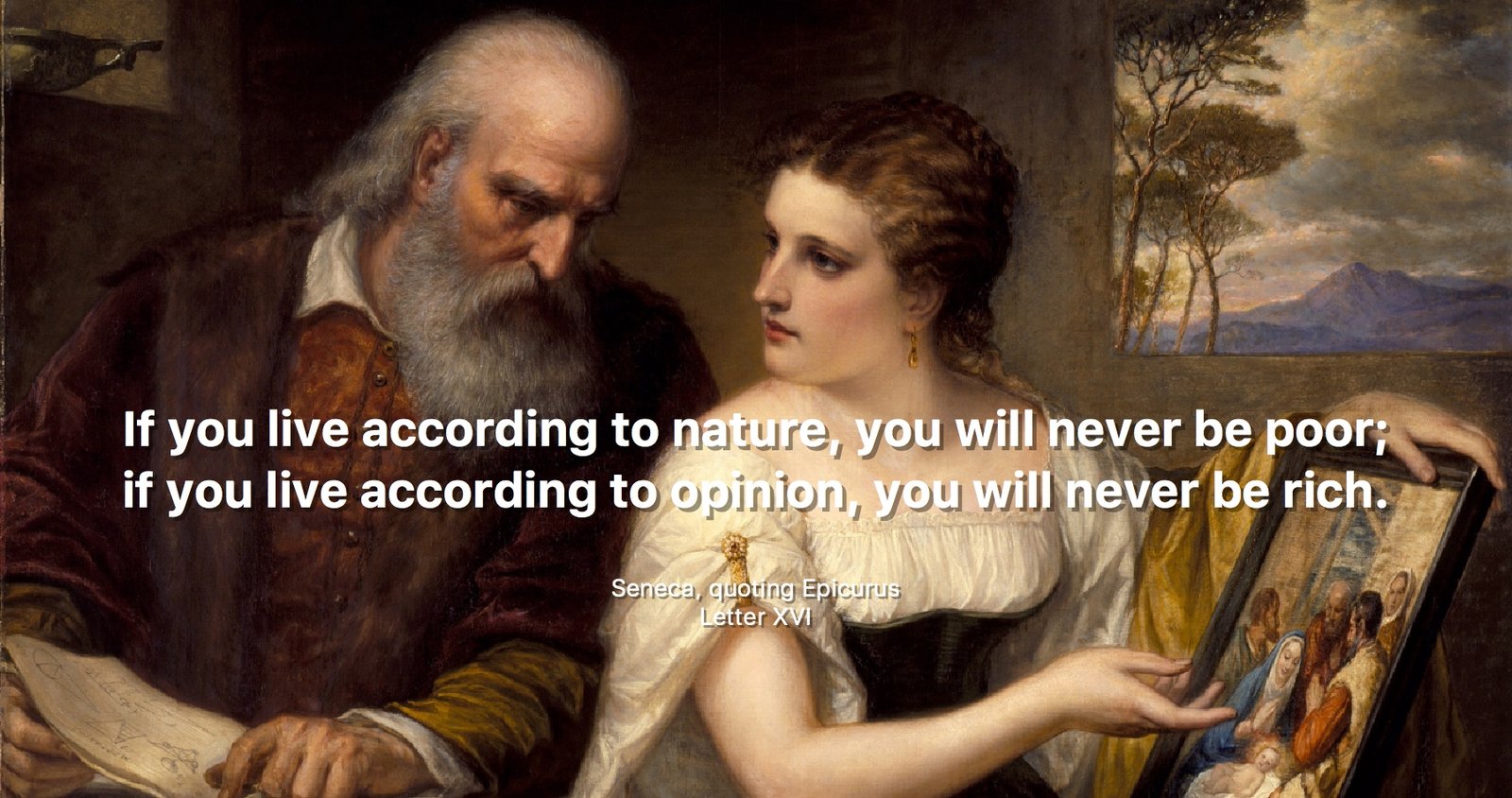In the letter 45 Sêneca talks about the sophist school and defines it as a futile exercise:
“They lost much time in quibbling about words and in sophistical argumentation; all that sort of thing exercises the wit to no purpose. We tie knots and bind up words in double meanings, and then try to untie them. Have we leisure enough for this? Do we already know how to live, or die? ” (XLV, 5)
It sums up that not knowing sophisms does no harm, and mastering them does no good, the main message is to focus on the important, letting the pointless pass:
“…teach us that the happy man is not he whom the crowd deems happy, namely, he into whose coffers mighty sums have flowed, but he whose possessions are all in his soul, who is upright and exalted, who spurns inconstancy, who sees no man with whom he wishes to change places, who rates men only at their value as men, who takes Nature for his teacher, conforming to her laws and living as she commands, whom no violence can deprive of his possessions, who turns evil into good, is unerring in judgment, unshaken, unafraid, who may be moved by force but never moved to distraction, whom Fortune when she hurls at him with all her might the deadliest missile in her armoury, may graze, though rarely, but never wound.“(XLV, 9)
In the text, Sêneca uses a very interesting expression: “But I must not exceed the bounds of a letter, which ought not to fill the reader’s left hand.” This observation is valid when such a letter is written on papyrus rolls, unrolled with the right hand while the left hand collects the part that has already been read.
(image: Democritus (center) and Protagoras (right) 17th-century painting by Salvator Rosa. Protagoras’ statement that, “Man is the measure of all things” was interpreted by Plato to mean that there is no objective truth.)
XLV. On Sophistical Argumentation
1. You complain that in your part of the world there is a scant supply of books. But it is quality, rather than quantity, that matters; a limited list of reading benefits; a varied assortment serves only for delight. He who would arrive at the appointed end must follow a single road and not wander through many ways. What you suggest is not travelling; it is mere tramping.
2. “But,” you say, “I should rather have you give me advice than books.” Still, I am ready to send you all the books I have, to ransack the whole storehouse. If it were possible, I should join you there myself; and were it not for the hope that you will soon complete your term of office, I should have imposed upon myself this old man’s journey; no Scylla or Charybdis or their storied straits could have frightened me away. I should not only have crossed over, but should have been willing to swim over those waters, provided that I could greet you and judge in your presence how much you had grown in spirit.
3. Your desire, however, that I should dispatch to you my own writings does not make me think myself learned, any more than a request for my picture would flatter my beauty. I know that it is due to your charity rather than to your judgment. And even if it is the result of judgment, it was charity that forced the judgment upon you.
4. But whatever the quality of my works may be, read them as if I were still seeking, and were not aware of, the truth, and were seeking it obstinately, too. For I have sold myself to no man; I bear the name of no master. I give much credit to the judgment of great men; but I claim something also for my own. For these men, too, have left to us, not positive discoveries, but problems whose solution is still to be sought. They might perhaps have discovered the essentials, had they not sought the superfluous also.
5. They lost much time in quibbling about words and in sophistical argumentation; all that sort of thing exercises the wit to no purpose. We tie knots and bind up words in double meanings, and then try to untie them. Have we leisure enough for this? Do we already know how to live, or die? We should rather proceed with our whole souls towards the point where it is our duty to take heed lest things, as well as words, deceive us.
6. Why, pray, do you discriminate between similar words, when nobody is ever deceived by them except during the discussion? It is things that lead us astray: it is between things that you must discriminate. We embrace evil instead of good; we pray for something opposite to that which we have prayed for in the past. Our prayers clash with our prayers, our plans with our plans.
7. How closely flattery resembles friendship! It not only apes friendship, but outdoes it, passing it in the race; with wide-open and indulgent ears it is welcomed and sinks to the depths of the heart, and it is pleasing precisely wherein it does harm. Show me how I may be able to see through this resemblance! An enemy comes to me full of compliments, in the guise of a friend. Vices creep into our hearts under the name of virtues, rashness lurks beneath the appellation of bravery, moderation is called sluggishness, and the coward is regarded as prudent; there is great danger if we go astray in these matters. So stamp them with special labels.
8. Then, too, the man who is asked whether he has horns on his head[1] is not such a fool as to feel for them on his forehead, nor again so silly or dense that you can persuade him by means of argumentation, no matter how subtle, that he does not know the facts. Such quibbles are just as harmlessly deceptive as the juggler’s cup and dice, in which it is the very trickery that pleases me. But show me how the trick is done, and I have lost my interest therein. And I hold the same opinion about these tricky word-plays; for by what other name can one call such sophistries? Not to know them does no harm, and mastering them does no good.
9. At any rate, if you wish to sift doubtful meanings of this kind, teach us that the happy man is not he whom the crowd deems happy, namely, he into whose coffers mighty sums have flowed, but he whose possessions are all in his soul, who is upright and exalted, who spurns inconstancy, who sees no man with whom he wishes to change places, who rates men only at their value as men, who takes Nature for his teacher, conforming to her laws and living as she commands, whom no violence can deprive of his possessions, who turns evil into good, is unerring in judgment, unshaken, unafraid, who may be moved by force but never moved to distraction, whom Fortune when she hurls at him with all her might the deadliest missile in her armoury, may graze, though rarely, but never wound. For Fortune’s other missiles, with which she vanquishes mankind in general, rebound from such a one, like hail which rattles on the roof with no harm to the dweller therein, and then melts away.
10. Why do you bore me with that which you yourself call the “liar” fallacy,[2] about which so many books have been written? Come now, suppose that my whole life is a lie; prove that to be wrong and, if you are sharp enough, bring that back to the truth. At present it holds things to be essential of which the greater part is superfluous. And even that which is not superfluous is of no significance in respect to its power of making one fortunate and blest. For if a thing be necessary, it does not follow that it is a good. Else we degrade the meaning of “good,” if we apply that name to bread and barley-porridge and other commodities without which we cannot live.
11. The good must in every case be necessary; but that which is necessary is not in every case a good, since certain very paltry things are indeed necessary. No one is to such an extent ignorant of the noble meaning of the word “good,” as to debase it to the level of these humdrum utilities.
12. What, then? Shall you not rather transfer your efforts to making it clear to all men that the search for the superfluous means a great outlay of time, and that many have gone through life merely accumulating the instruments of life? Consider individuals, survey men in general; there is none whose life does not look forward to the morrow.
13. “What harm is there in this,” you ask? Infinite harm; for such persons do not live, but are preparing to live. They postpone everything. Even if we paid strict attention, life would soon get ahead of us; but as we are now, life finds us lingering and passes us by as if it belonged to another, and though it ends on the final day, it perishes every day. But I must not exceed the bounds of a letter, which ought not to fill the reader’s left hand.[3] So I shall postpone to another day our case against the hair-splitters, those over-subtle fellows who make argumentation supreme instead of subordinate.
Farewell
Footnotes
- ↑ Cf. Gellius, xviii. 2. 9 quod non perdidisti, habes; cornua non perdidisti; habes igitur cornua; cf. also Seneca, Ep. xlviii.
- ↑ e.g. Gellius, xviii. 2. 10 cum mentior et mentiri me dico, mentior an verum dico?
- ↑ A book was unrolled with the right hand; the reader gathered up the part already perused with the left hand. Nearly all books at this time were papyrus rolls, as were letters of any great length.







